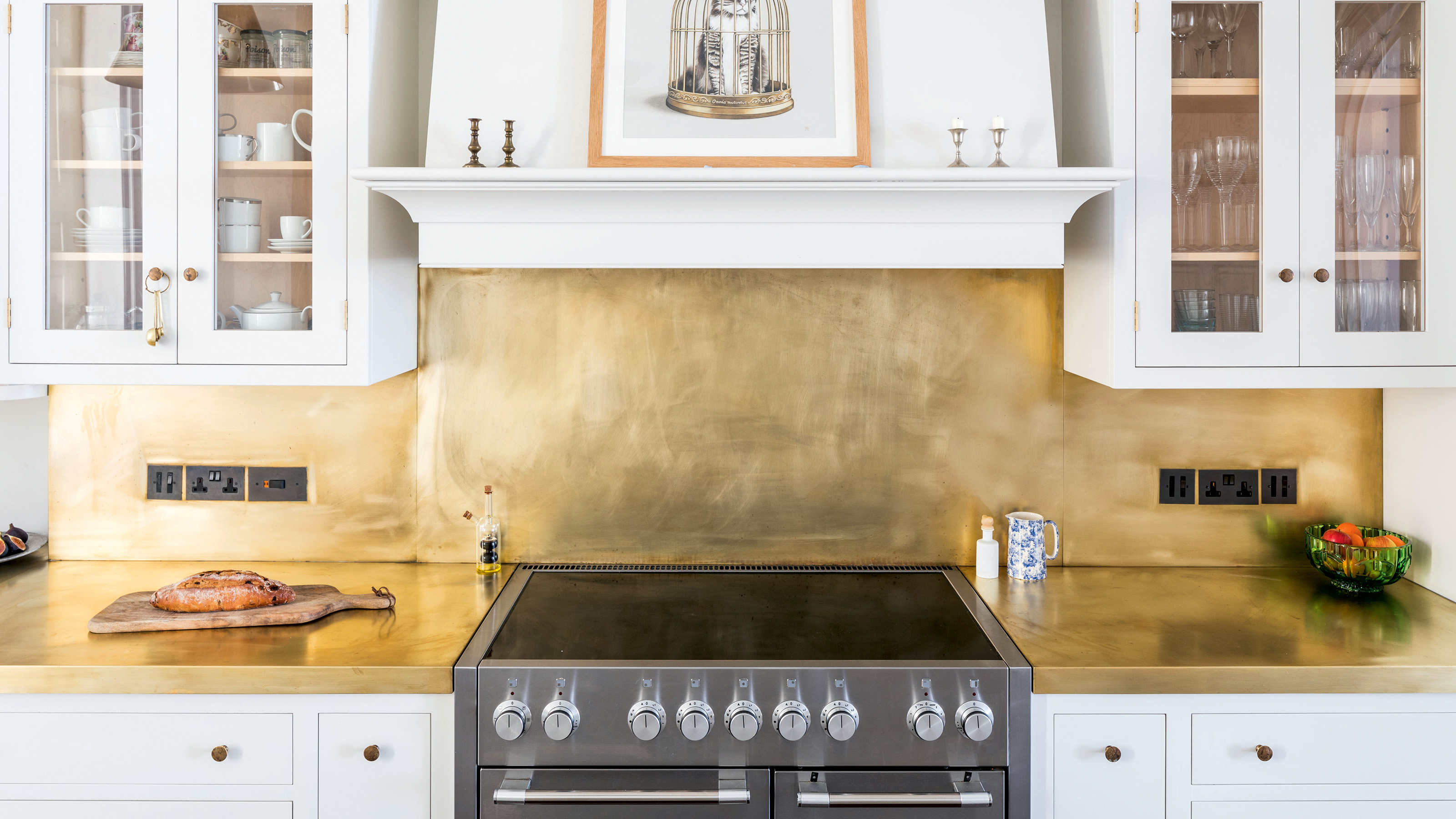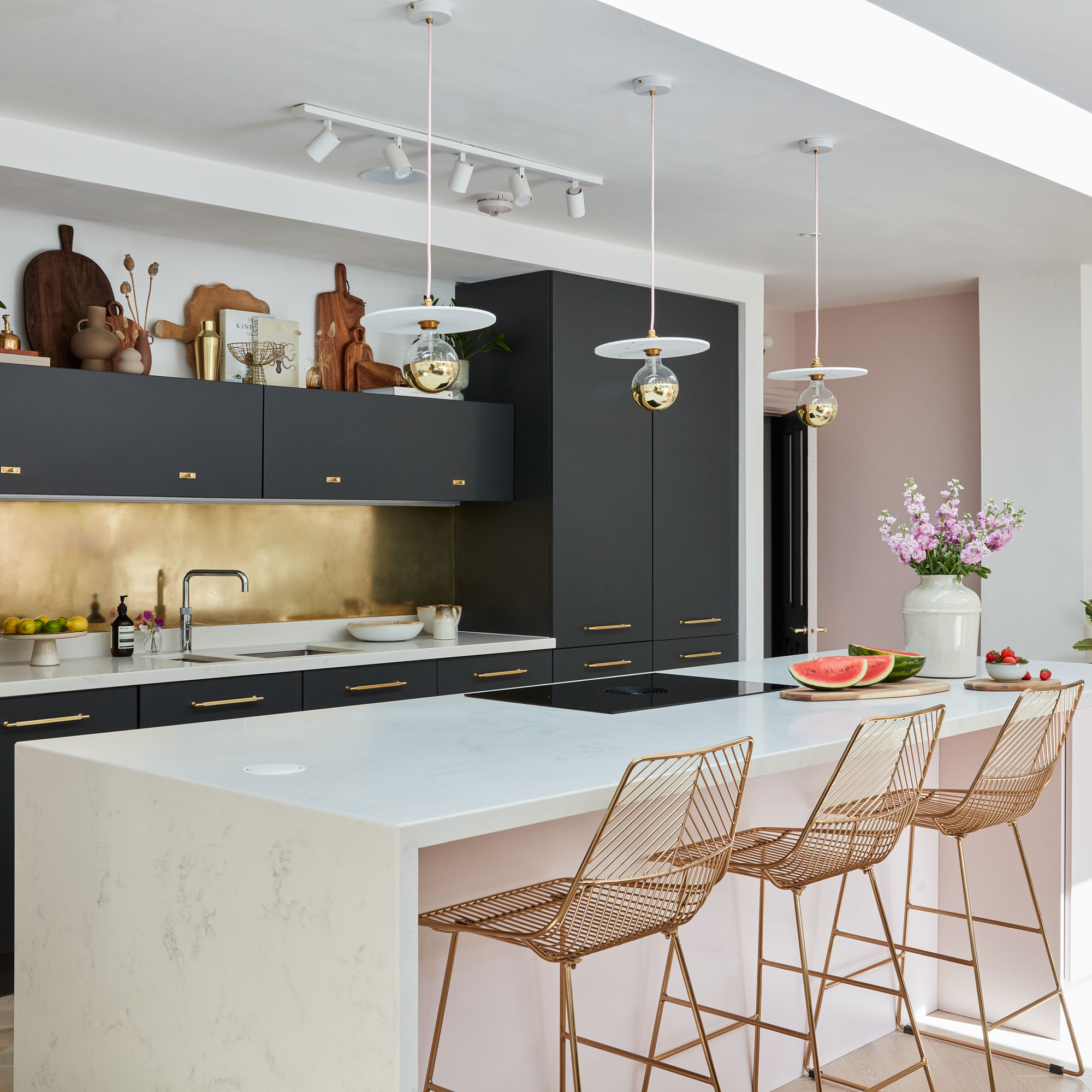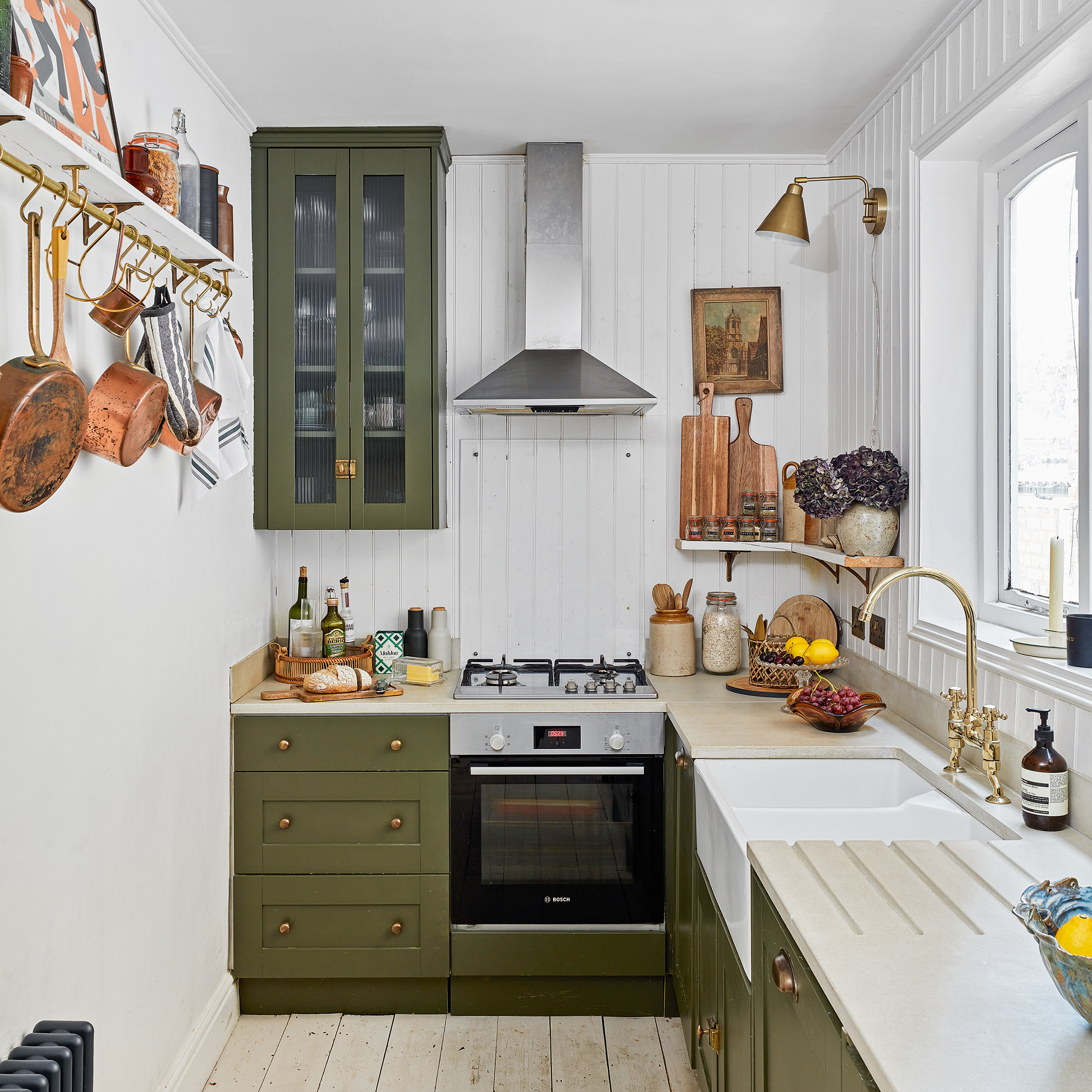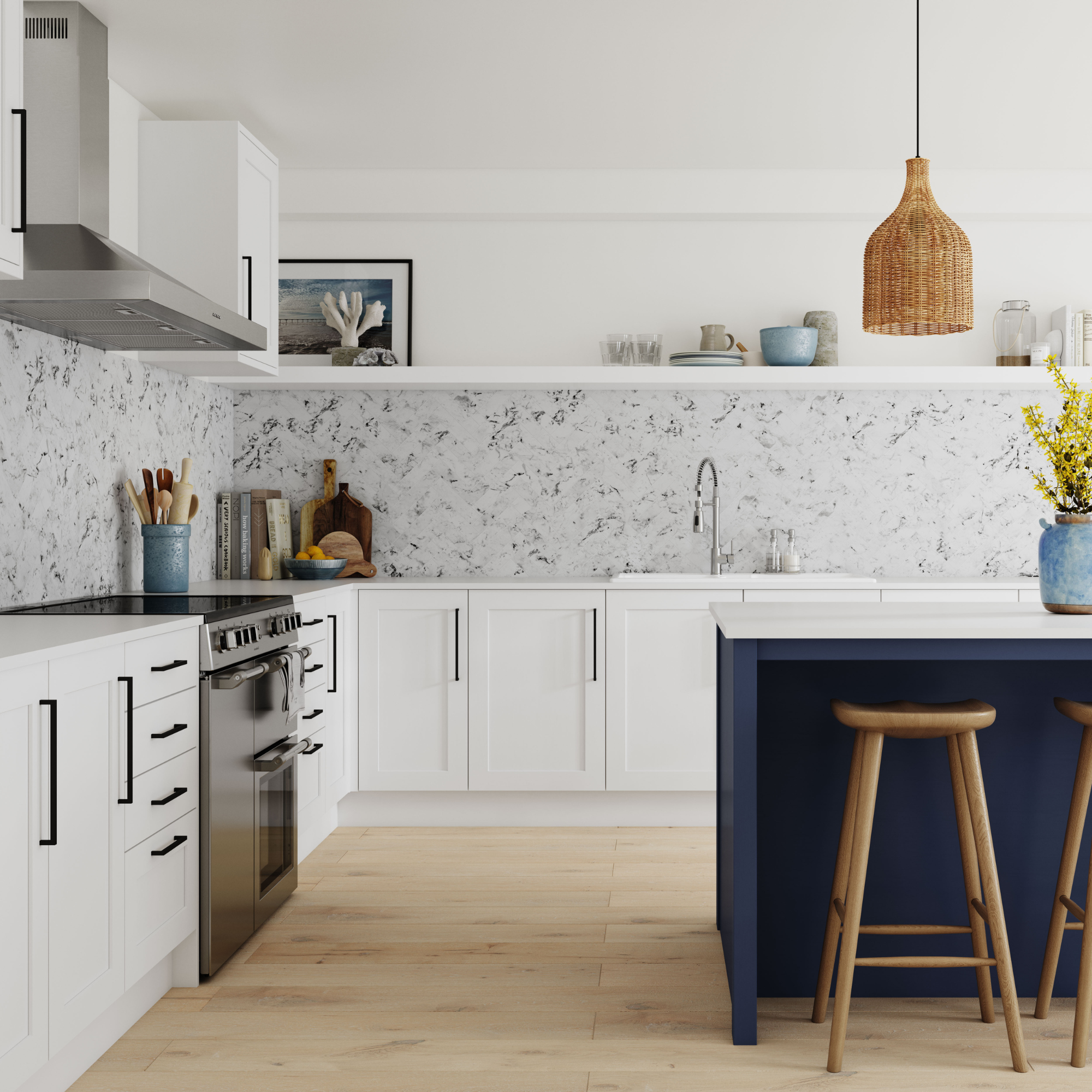Get rid of bacteria-harbouring tiles and replace them with one of these hygienic splashback alternatives
Move over tiles, these are the three most hygienic splashbacks


Sign up to our newsletter for style inspiration, real homes, project and garden advice and shopping know-how
You are now subscribed
Your newsletter sign-up was successful
The kitchen needs to be one of the cleanest rooms in the home, after all, it is where we prepare our food and eat.
Tiles have long ruled as the most popular kitchen splashback; however, they also harbour hidden harmful bacteria. Grout is porous, meaning it absorbs moisture and creates the perfect environment to breed harmful bacteria. Combine this with porous tiles – including unglazed stone, ceramic or porcelain – and your kitchen splashback could be one of the dirtiest places in your home.
However, there are more hygienic splashbacks options that are naturally antibacterial and antimicrobial, helping you win the battle for a non-toxic home.
The most hygienic splashbacks
In a 2024 survey by Churchill, kitchen surfaces were found to harbour more Streptococcus, Enterobacter (found in faeces) and yeast/mould than a toilet seat.
'Despite kitchen surfaces harbouring the most bacteria overall, kitchens were found to be the place people cleaned most frequently, with 17 per cent saying they do so every time they use it and a third (33 per cent) claiming to clean it every day,' explains Sarah Khan, Head of Churchill Home Insurance.
If you want to stick to your tiles you can, but you will need to know how to clean grout, to banish all that harmful bacteria. However, if you're after a more low-maintenance option, it might be worth choosing one of these alternatives instead.
1. Metal splashbacks

Beautiful and hygienic, an aged brass or copper splashback will quickly become the star of the space. Loved for their golden tones brought out by the ageing process, both copper and brass are naturally germicidal – killing bacteria on contact – making it ideal for the kitchen.
Sign up to our newsletter for style inspiration, real homes, project and garden advice and shopping know-how
'Metal is great for worktops and splashbacks due to its hygienic antimicrobial and antibacterial qualities, that's why chefs' kitchens have metal worktops!' explains Zoe Holland, from Sustainable Kitchens. 'They are also super easy to clean, there's no food or waste stuck in cracks and joints. In terms of sustainability, metals can all be recycled at the end of life.'
Since copper and brass splashbacks are naturally antibacterial, you can avoid cleaning products that can be harmful and instead opt for natural alternatives, like this Miniml spray from Amazon.
2. Glass

If you love the decorative appeal of tiles, glass offers a perfect alternative modern kitchen splashback.
One of the most hygienic splashback materials, glass is non-porous and there is no grout to harbour bacteria or grease build-up – it only needs a quick wipe with a glass cleaner to keep it gleaming.
Glass splashbacks come in a range of styles from decorative designs that mimic wallpaper or artwork, to minimalist clear glass or mirrored pieces that brighten dark spaces – all boasting the same anti-bacterial properties.
Plain glass – whether coloured or see-through – is one of the most affordable hygienic splashbacks, B&Q stocks a 60cm x 60cm clear glass splashback for just £40.
3. Aluminium

If you don't love the look of metallic splashbacks or are put off by the patina they develop, then aluminium splashbacks might prove the ideal solution. Designs, like this wooden Alloy design at B&Q, replicate the high-end look of marble or the warmth of wood without compromising your kitchen's hygiene. B&Q even stocks a design that looks like tiles.
Whether patterned, decorative, coloured or plain, aluminium is incredibly durable – making it perfect for DIY installation – and stable, meaning it will not change with age or sunlight.
Installed without the need for bacteria-harbouring grout, aluminium is non-porous, naturally antibacterial and mould-resistant. Instead, it is simply cleaned with a cloth and soapy water – just as you would clean stainless steel appliances.
'If you’re looking for budget kitchen ideas, one of the most cost-effective ways to update your kitchen splashbacks is to consider large format, grout-free wall aluminium panelling, which can be applied over existing tiles', advises Emma-Louise Braham, product manager for Alloy Kitchen Splashback.
Would you consider upgrading your splashback tiles to another material to make it easier to clean?

Holly is one of Ideal Home’s content editors. Starting her career in 2018 as a feature writer and sub-editor for Period Living magazine, she has continued this role also adding regular features for Country Homes & Interiors and the Ideal Home website to her roster. Holly has a passion for traditional and country-inspired interiors – especially kitchen design – and is happiest when exploring the countryside and hills of the Lake District. A keen gardener, she is a strong believer that you can never have too many houseplants.